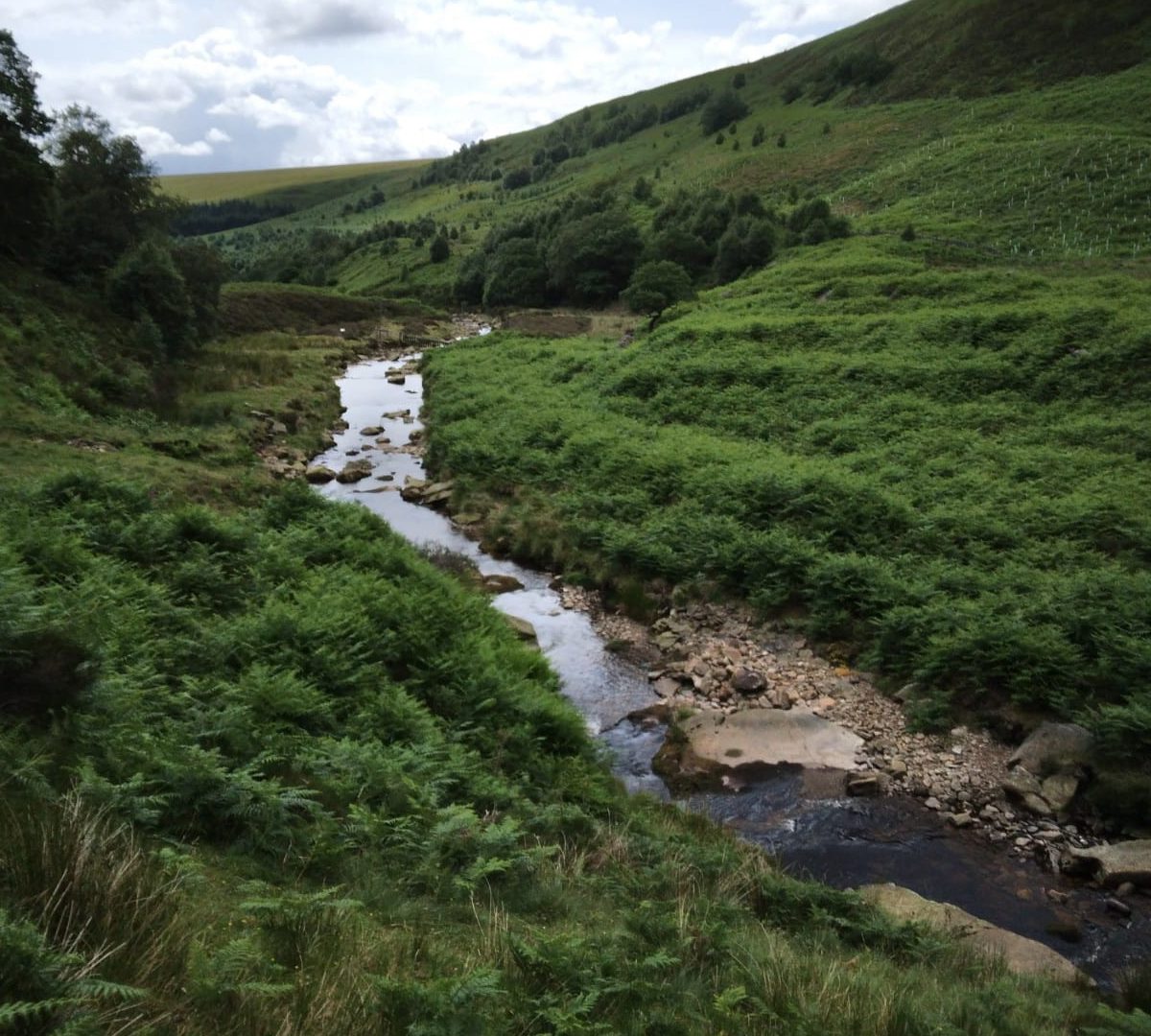
The Upper Derwent Valley is safe for now but it should never have been under threat

I’m writing this on the train heading back from a visit with colleagues from BMC to the Upper Derwent Valley in the Peak District. It’s a trip that was planned and booked before last week’s decision by Severn Trent Water (STW) to press pause on proposals for a massive new reservoir which would have destroyed an area with huge value for both nature and the people who visit this remote and peaceful spot. These proposals were wrong for so many reasons as, our Chief Executive, Rose O’Neill highlighted after her own visit to the valley a few weeks ago. But having been there myself now, I can fully appreciate the scale of devastation that would be caused if this new reservoir were ever to go ahead. A vast swathe of the valley would be submerged under water and a place that is currently home to bilberry-covered moorland, butterflies and birdsong and popular with walkers, swimmers and cyclists would be lost.
It’s questionable whether additional water storage on this scale would be required if STW were putting more effort into reducing the billions of litres of water they lose to leaks each year. But even if the company is certain new infrastructure is needed, there is simply no justification for choosing this particular location. By doing so, STW have completely failed to take account of the fact that the Derwent Valley is in a National Park, an area which is specifically designated for its wildlife, natural beauty, cultural heritage and recreational opportunities. Different, stronger planning rules apply in National Parks including a strong presumption against major development and a requirement on companies providing public services such as water to take account of the impact of their activities on the National Park. This damaging proposal clearly does not comply with these rules and yet the company had chosen to press ahead with it anyway.
That’s why we celebrated alongside others campaigning against the reservoir expansion, when STW announced their decision to put the plans on hold last week. But we’re very aware that the threats to this valley have not gone away completely, and that the company may well come forward with proposals for new infrastructure here again in the not-too-distant future. Even if they do completely abandon plans for a new reservoir, the other options they have been considering include raising the levels of the existing reservoirs – at Ladybower, Derwent and Howden – lower down the valley. If they were ever to go ahead, these proposals would also lead to years of the intrusion, noise, and heavy machinery associated with major development. We must make sure that never happens.
I’m very glad I had the opportunity to visit the Derwent Valley on such a beautiful summer’s day, but I’m sad too, that my visit was prompted by the threat of damage to such a special place, and that our precious National Parks still remain at risk from those who fail to understand their value. One way we can reduce that risk and ensure that STW scraps these plans altogether is by strengthening the protections which apply in National Parks. The fact that the company ever thought it was acceptable to put forward something so damaging in a National Park demonstrates clearly just how weak the existing protections are. It’s a perfect example of why we’re campaigning for the requirements on organisations like STW to be strengthened, so that in future, they will have to show clearly how any changes they want to introduce in National Parks will help support improved wildlife, public access and the other important objectives these areas were created for.
This change is something we’ve long been calling for but right now there is a rare and important opportunity to secure the necessary legislative amendments through the Levelling Up and Regeneration Bill currently making its way through Parliament. We need everyone who cares about National Parks to join us in convincing MPs to support our Protected Landscape amendment when the Bill returns to the Commons later this year.
